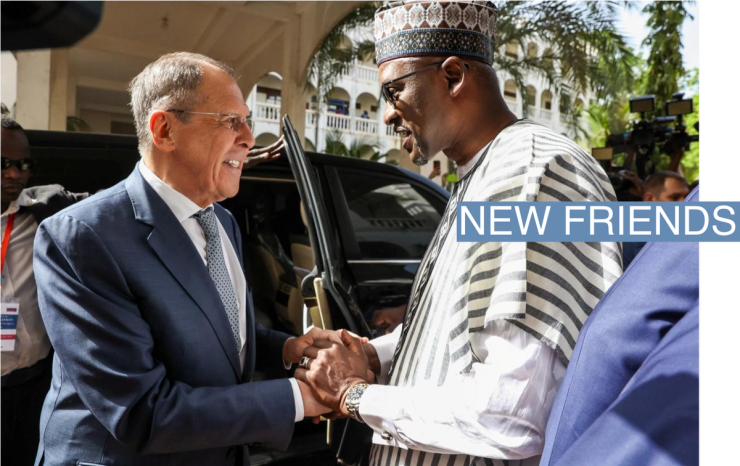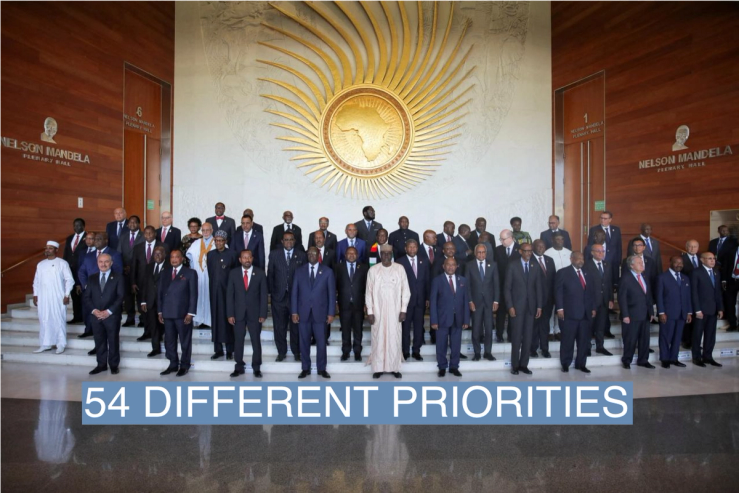The Facts
One year ago, on Feb. 24 2022, Russia launched a war with Ukraine that it called a “special military operation”. Since then, not only has the war led to loss of life, destruction of property and business especially in Ukraine, African countries have also experienced the side effects through shifts in global energy and trade patterns, and therefore inflation and interest rates.
African countries have been amongst those voting at the UN General Assembly and Human Rights Council on various resolutions focused on how to address the war. Ukraine’s and Russia’s foreign ministers have been visiting various African countries — the former for the first time in decades.
In this article:
Hannah’s view
The international community’s response to Russia’s invasion of Ukraine has highlighted the deep “eurocentrism” perspective that underpins the United Nations and global financial system. It has also shown the lack of awareness for the different priorities of African countries among the world’s most influential policymakers.
When the war broke out, there was an initial alarm call by the UN and other aid agencies on the potentially debilitating effects of wheat shortages in African countries. In fact, the real story was, like COVID-19, that there would not be a massive immediate shock on the continent because most African citizens do not primarily rely on wheat as a staple. Instead African countries’ resilience would be tested in a slower time as supply chains and general price inflation worsened.
Hence, in June 2022, the African Union visited Russia to negotiate directly, paving the way for an opening of ports to ensure delivery of food, fertilizer and other materials that would not only benefit Africa but also Europe in particular.
The experience has reiterated that going forward, African countries will need to focus not just on “security” of food or health through development interventions such as vaccine or food donations — because these cannot be trusted, but “sovereignty” of food and health through local manufacturing and even export controls, as this is the only way to guarantee local protection from global shocks.

There has been surprise at the African voting patterns at the UN soon after the Russian invasion and even more recently. During a Mar. 2 2022 vote for a condemnation of Russia’s actions, African countries were split — with 28 countries voting in favor. But one voted against and 17 countries abstained, with eight not participating at all. Last week just two more African countries supported the resolution with much else unchanged.
These patterns should not be surprising, given historical foreign policy stances that different African countries have taken within the UN and the broader international system. The public and private calls, often in condescending tones — have reiterated the need for African leaders to be more vocal to express their perspectives on conflict, as well as to coordinate better to learn from each other.
The disdainful treatment of Africans in Ukraine seeking refuge after the conflict started was another turning point. It was coupled with media reporting aimed at generating sympathy for the victims of the war.
While actions were reportedly taken to avoid the maltreatment, it reinforced the need for the African diaspora to coordinate and strengthen their voice in their chosen countries of residence and at the global level.
The most challenging moment since the war began is that it also revealed that the international financial system has some significant problems. Just a few months after the war started the IMF and its shareholders had approved a mix of favorable loans and donor options to Ukraine worth more than $5.5 billion.
Meanwhile, a low-income country such as Ethiopia, which has also until very recently been in war, has been unable to access IMF loans, with the excuse that the country’s bilateral creditors like China are not engaging in the way other creditors would prefer. Moreover, with the new focus on providing finance for Ukraine’s military and refugees, aid has become highly restricted and scarce, meaning African governments have to dig deep domestically to fund externally-imposed shocks.
The significant disparity of treatment is not lost on African governments and citizens, and this is leading to strengthening calls for reform of international development institutions.
All of these experiences have two major implications. First, it has reinforced the need for better representation of the African continent at all forums for foreign policy, at all levels – from the UN Security Council, to the G20, and beyond. Second, it has reinforced the need for African countries to ensure they protect their own sovereignty going forwards. Hence, the phrase “African solutions to African problems” was reiterated in speech after speech at the most recent African Union summit.
Room for Disagreement
There is some analysis suggesting that Russia has been seeking malign influence on Africa, including through the provision of private security services, and this is the primary reason behind voting patterns observed at the UN. The implication of this analysis is that African leaders — often embroiled in conflict — are somewhat “easy” to sway, and therefore other countries should do more to bring Africans to “their sides”.
Much of the UN-based analysis and from the IMF and World Bank has consistently emphasized impacts on food security, and has over time also emphasized broader impacts on rising fuel and food prices, inflation and financial instability. Some analysis has suggested the war could lead to a debt crisis on the continent. The implication is that African countries will not be able to weather the storm — either because leaders will not take any or the right policy decisions, or because they need more financial support, including through the UN and, e.g. IMF, to address these impacts.
NOTABLE
- It matters that different African countries have different views of Russia’s invasion of Ukraine. Here’s an analysis of how and why they voted the way they did, from Development Reimagined.


